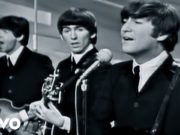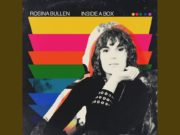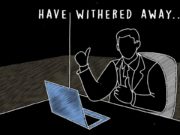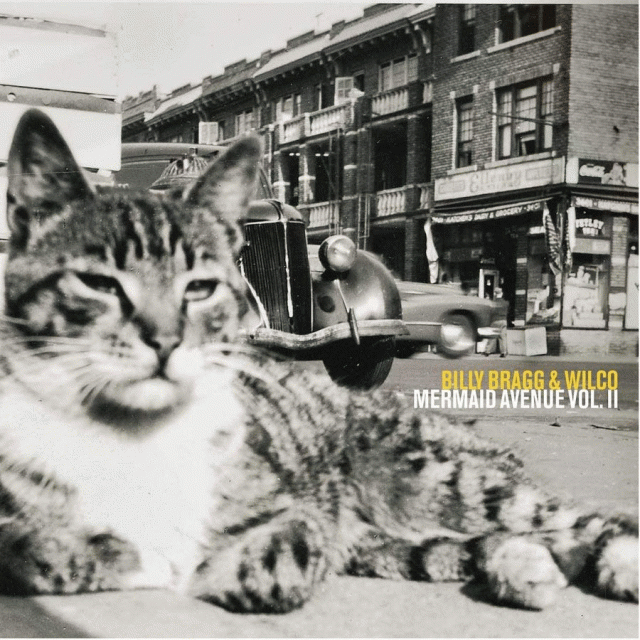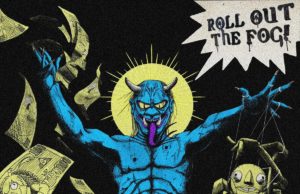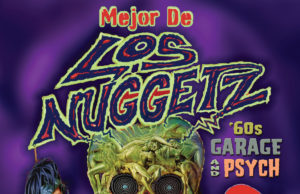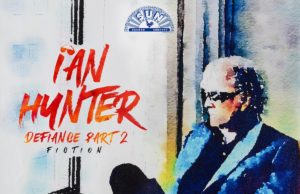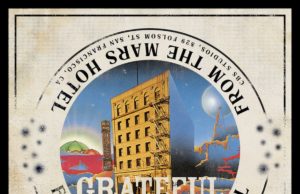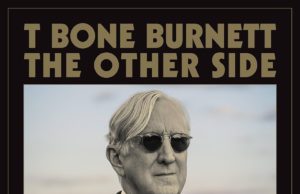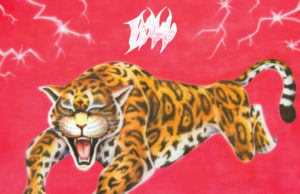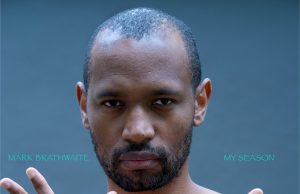Two decades ago, new releases from Johnny Cash, Belle & Sebastian, NOFX and others were spinning away in my portable CD player. Here’s what I had to say about them back then (with some minor editing):
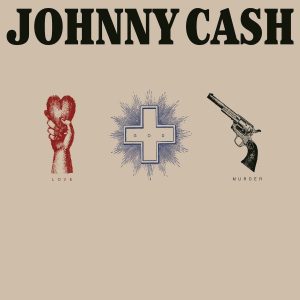 Johnny Cash
Johnny Cash
Love, God, Murder
Bridegrooms wear black. Ditto preachers, judges and executioners. And, of course, Johnny Cash — The Man in Black hisself. That sartorial synchronicity should come as no surprise, mind. Not when you recall the country music legend has spent decades singing about subjects he and those dark-dudded dudes understand intimately — romance, obsession, religion, temptation, betrayal, crime, punishment and death. Or to boil it down to the pithy three-word title of his new box set: Love, God, Murder.
If it seems like short shrift to sum up Cash with three little words, well, put your mind at ease. Johnny doesn’t mind a bit. In fact, if you believe the press bumpf, it was Cash who came up with the concept: A three-disc retrospective with one CD devoted to each of the themes that have dominated his art. He supervised the production and remastering and even penned brief liner notes for the discs (which are also available separately). More importantly, he also selected the songs, combing hundreds of tunes from his earliest Sun sessions to ’90s Viper Room gigs to select the 48 tracks (roughly one for every year he’s been in show biz) that make up these three CDs.
That input is what sets Love, God, Murder apart from yer typical greatest-hits set compiled by record-company weasels. Not that you won’t find hits here; there’s plenty of ’em — from Ring of Fire and Folsom Prison Blues to Delia’s Gone, many of Cash’s classics are present and accounted for. Along with ’em, though (and instead of overplayed chestnuts like A Boy Named Sue or Tennessee Flat-Top Box), you get a healthy serving of more obscure tracks; old B-sides, long-forgotten album cuts and oddball ditties that topped Johnny’s personal hit parade even if them never charted in Billboard. Of course, he sings ’em all like they were destined to be, with those coal-mine deep pipes and that world-weary delivery of his.
Which of the three is best? Well, that’s kinda like asking whether you prefer air, food or water. Love has I Walk the Line, Ring of Fire, a tender take on Bob Wills’ My Shoes Keep Walking Back to You, two top-drawer unreleased tracks — the doo-woppy My Old Faded Rose and the brooding weeper I Tremble For You — along with a sweetly touching essay by wife June Carter about how she became hypnotized by Johnny’s “black eyes that shone like agates.” God skips bigger faves like Peace in the Valley for mostly lesser-known fare (at least to heathens like me) such as My God is Real and It Was Jesus. However, Kris Kristofferson’s Why Me Lord and Johnny’s own Great Speckled Bird will probably ring a few church bells with even the biggest sinners — and spirited numbers like The Greatest Cowboy of Them All and Man in White keep the disc from getting overly reverent (as does a typically bombastic essay from Bono).
But if Johnny had an angel on one shoulder, he always had a devil on the other. It was that struggle with his own personal demons — notably decades-long addictions to various evil goodies — that often made so much of his music so compelling. And it’s what makes Murder (with liner notes by Quentin Tarantino) the standout of this bunch. If Folsom Prison Blues and Long Black Veil don’t do it for you, well, there’s always the incredible chain-gang boogie of Goin’ to Memphis, his haunting cover of Bruce Springsteen’s Highway Patrolman, or the rollicking Cocaine Blues, a tale of drugs, betrayal and murder recorded during his famous ’60s gig at Folsom (and which is cooler than anything so-called bad boys like Led Zep or Guns N’ Roses ever did).
With Cash’s health is in decline — he suffers from the degenerative neurological disorder Shy-Drager Syndrome — he may be thinking about how he wants to be remembered. With these three discs, folks can take their pick: devoted husband, God-fearing penitent or prototypical rock ‘n’ roll rebel. Either way, there’s no doubt of his true legacy: Great American Artist.
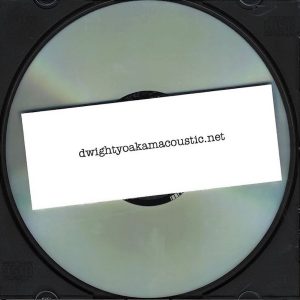 Dwight Yoakam
Dwight Yoakam
DwightYoakam Acoustic.net
When Dwight Yoakam goes back to basics, he goes all the way back. On his stripped-down disc dwightyoakamacoustic.net, there’s no band, no backup singers, no big production. Heck, there isn’t even a CD booklet. This ultra-plain set consists of three things: Dwight, his acoustic gee-tar and a couple dozen tracks from throughout his career, delivered here in their purest form. For Dwightniks, it’s likely the next best thing to hog heaven to hear these back-porch readings of high-lonesome tracks like Bury Me, I’ll Be Gone and Lonesome Roads. If you aren’t fascinated by all things Yoakam, though, his songwriting and delivery can get pretty one-dimensional pretty fast — Dwight is, after all, no Bruce Springsteen and this is no Nebraska. A few more rockin’ tunes might have helped, but a kicky version of Little Sister — one of the few to feature an overdubbed solo — and an a cappella version of Guitars, Cadillacs are as close to uptempo as things get. All things considered though, dwightyoakamacoustic.net is still basically OK.
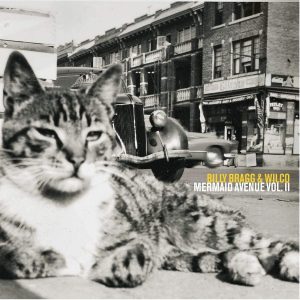 Billy Bragg & Wilco
Billy Bragg & Wilco
Mermaid Avenue Vol. II
A coupla years back, pasty English folk-punk Billy Bragg and Yankee alt-rootsers Wilco made one of the year’s best discs by writing new tunes for Woody Guthrie’s leftover lyrics. Well, since the Woodman reportedly left a few thousand ditties in the vault when he went to that great labour rally in the sky, a sequel was inevitable. And while this second chapter of Mermaid Avenue — named after the Coney Island street where Guthrie lived — won’t make as many year-end best-ofs as its predecessor, it’s a better sequel than, say, Speed II. Divided between new tracks and tunes left off the first volume, these 15 recycled gems again explore the various facets of Guthrie’s complex personality — equal parts romantic balladeer (the gently flowing Secret of the Sea), protest singer (the blistering boogie All You Fascists) and goofball (the Buddy Holly-ish My Flying Saucer and the hoedown Joe DiMaggio Done it Again). If you dig Guthrie, you’ll dig this. If you don’t, this just may change your mind. And if not, well, there’s always Vol. III (I hope).
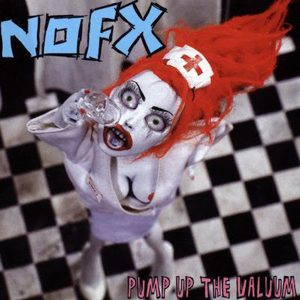
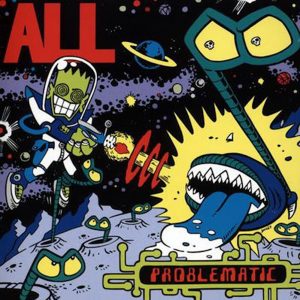 NOFX
NOFX
Pump Up The Valuum
All
Problematic
In punk rock, breaking up isn’t hard to do. Growing up, though, is tough. Especially when you’ve been around as long as All and NOFX. Both of these bands are pushing the big 1-5 — not exactly Rolling Stones vintage, but still older than much of their all-ages audience. So what do you do? If you’re NOFX, the answer is a no-brainer — literally. On their dozenth disc, Fat Mike Burkett and his L.A. homeboys remain punk’s most gleefully sophomoric, button-pushingly offensive outfit, cracking wise, trash-talking and generally refusing to grow up on these adolescent anthems to drugs (Herojuana), lesbian S&M (Louise) and transsexuals (My Vagina). Is it dumb? You bet. But’s it’s also such infectious fun that when Mike claims, “We’re pushing 40 and we’re doin’ just fine,” it’s impossible to argue. On the flip side of the maturity coin are All, Colorado-based descendants of the legendary Descendants. Their goal: To age gracefully. Which is not to say mellowly. All’s drug of choice may be coffee, but their caffeine-jag punk packs all the energy and verve they’ve always had. What they add to the mix, however, are the craftsmanship and precision you’d expect from the journeyman they are. Not to mention the righteous, simmering anger of middle-aged guys who cling to their principles while others cash in by selling out. Sure, their nostalgic, serious tracks about relationships, romance and regret may not speak to NOFX’s fans — but it’s reassuring to know some punks can grow with their followers.
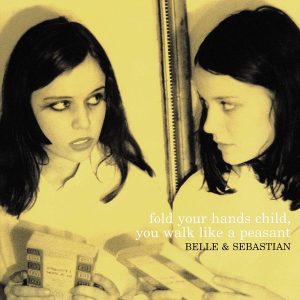 Belle & Sebastian
Belle & Sebastian
Fold Your Hands Child, You Walk Like A Peasant
Stuart Murdoch may be the most unlikely pop star on the planet. Despite being main singer, songwriter and nominal leader of award-winning, ultra-hip Scottish folk-pop octet Belle and Sebastian, he refuses interviews, avoids photo shoots, rarely tours and reportedly lives above a church hall in Glasgow — and toils there as a janitor. Now his disdain for the limelight has begun to creep into his art; on his band’s preciously eclectic, wonderfully charming fourth album, he loosens his grip on the creative reins and recedes to let his bandmates’ songs and vocals come to the forefront. It’s a sweet gesture, if not a totally satisfying one. Murdoch’s endearingly offbeat ’60s pop — imagine Ray Davies collaborating with Burt Bacharach — has always been B&S’s strong suit, and talented as his cohorts are, their contributions can’t quite compete with his breezy, sunshiney trinkets like The Model and Woman’s Realm. Of course, one doubts Stuart gives a toss. And frankly, as long as you get enough of his unpretentiously pretty tunes to tide you over until the next release, you probably shouldn’t either.
 A-ha
A-ha
Minor Earth | Major Sky
Hands up, everybody who’s been waiting for an A-ha reunion! Um, hello? Anyone? Well, presumably somebody — somebody, that is, besides the three Norwegians in this ’80s synth-pop outfit — wants to hear more from the band that brought you Take On Me and The Sun Always Shines on TV. So here it is: Their first new disc in seven years. Not that you could tell they’ve been away. The baker’s dozen tracks on Minor Earth | Major Sky are chock-full of the same goopy keyboards, earnestly wussy sentiment and sweeping, midtempo orch-pop as always, with only the occasional electronica flourish or skittery drum track for a touch of trendiness. Why they bothered, we don’t know. When it comse to A-ha, just say uh-uh.
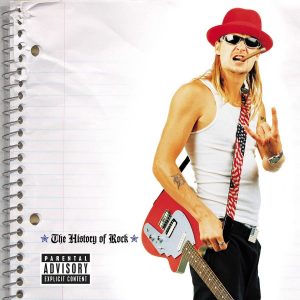 Kid Rock
Kid Rock
The History Of Rock
Nobody wants to be called an overnight sensation. One, it makes your success seem too accidental and capricious to be gratifying. And two, most of ’em don’t last much longer than overnight. That’s why every chump who gets lucky has to remind us he’s been around for years, slogging away and earning every second of his 15 minutes. Yeah, whatever. Still, few take it as far as white-trash rapper Kid Rock, who digs out his scrapbooks and roots through his attic for this retrospective disc. Most of these subpar tracks are from his early CDs that nobody bought. Mostly, they make it clear why nobody bought them — until Devil Without a Cause, Kid was just another rap wannabe, taking NWA’s trash-talking shtik and slapping it atop The Beastie Boys’ early monster-truck metal. The best track here is the Metallica-sampling American Bad Ass — and it’s brand new. With any luck, his next album will be as good as this. Which proves my point: Nobody cares about where he came from — we’re only interested in where he’s headed.
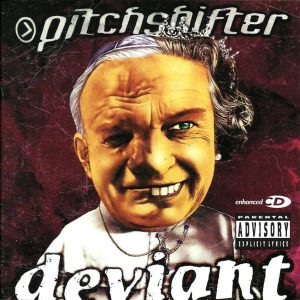 Pitchshifter
Pitchshifter
Deviant
Hey, parents. Want to buy a CD for your disaffected teen that’ll make you seem cool without pushing them over the edge into black trenchcoats and body piercings? Pitchshifter’s Deviant is just what the child psychologist ordered. Never mind the title; these guys are so safe they could have a Good Housekeeping seal of approval. Like your disgruntled adolescent, these post-industrial techno-metaloids yearn to be taken seriously and assert their individuality. Of course, they don’t want to be so individual that they’re, like, different and unpopular. So first they competently jam together the best musical bits of Nine Inch Nails, White Zombie and a few other electro-rock outfits. For punk street cred, they add a touch of Johnny Rotten (name-checked on Dead Battery) and former Dead Kennedys frontman Jello Biafra (who guest-rants on As Seen On TV). Then they serve it up in easy-to-swallow morsels like Hidden Agenda and Everything’s F–d. Don’t get me wrong: I’ll take Pitchshifter over the Bizkits and Britneys of the world any day. But really, they’re about as deviant as a backward ball cap.
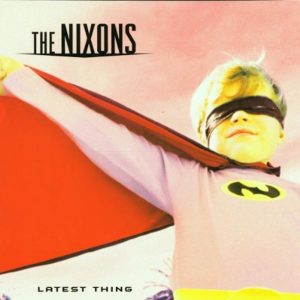 The Nixons
The Nixons
Latest Thing
Hunter Thompson supposedly taught his dobermans to attack at the sound of Richard Nixon’s name. Kinky Friedman uses the impeached prez’s handle to refer to something you do sitting in the bathroom — and it ain’t reading a magazine. Maybe it’s just more leftover karmic payback, but The Nixons aren’t winning many votes these days. It’s not as if they don’t have a strong platform. Like their previous CDs, their third album Latest Thing is a smart set of post-grunge heartland rockers with snarly guitars, poppy harmonies, earnest lyrics and hooks that could land a marlin. If Goo Goo Dolls, Soul Asylum or Hootie and the Blowfish wrote this, it would be a hit. With these guys, who knows? Maybe if they called themselves The FDRs.
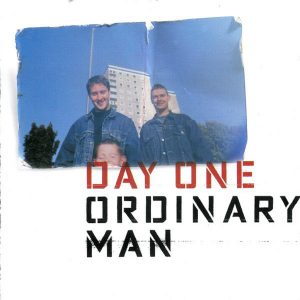 Day One
Day One
Ordinary Man
Bristol’s Phelim Byrne and Donnie Hardwidge are anything but egocentric pop stars. Like the title of their smashing debut disc suggests, the members of this charming electro-rock duo are just average blokes. As are the sad-sack characters who star in their wonderfully twee tales of everyday mundanity — stories about the loneliness of waiting for the last bus after the bar’s closed, the joy of making eyes with the cutie standing in the dole line next to you, the frustration of trying to get along with your gal, and the grind of trying to survive another boring day while daydreaming about being rich and famous. They may be small tales, but they’re wonderfully told in the pair’s crafty, smart lyrics and dry, conversational vocals — and beautifully supported by their stylish soundtrack of lightly funky grooves, simple memories and slightly spacey production. The best way to sum it up? Extraordinary.
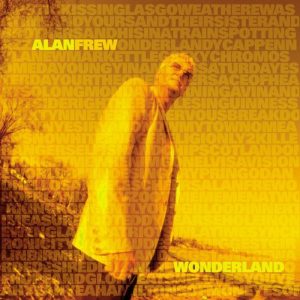 Alan Frew
Alan Frew
Wonderland
Obviously, some of us weren’t paying attention when Glass Tiger sang Don’t Forget Me When I’m Gone. So we purged Alan Frew and co. from our memory banks long ago — which made the arrival of his new comeback CD Wonderland all the more surprising, like a visit from a long-lost cousin you’d forgotten you had. It’s not the only surprise here; indeed, this wildly inconsistent CD is one of the most puzzling discs you’ll hear. After begging you to remember him, Frew now seems unsure whether he wants to be seen as a nostalgia act or a still-vital artist. So he tries to have it both ways — and ends up with neither. Half this disc is adventurous, risky new material with trip-hoppy textures, beatboxes and edgy lyrics, while the remainder is horribly trite ’80s pop fluff. No matter which you prefer, the other cancels it out. To make matters worse, he tacks the Glass Tiger tracks Someday and My Town on the end, presumably to spark a few sales from former fans. Make up your mind, Alan; all this wishy-washiness only makes Wonderland less of a wonder than a blunder.
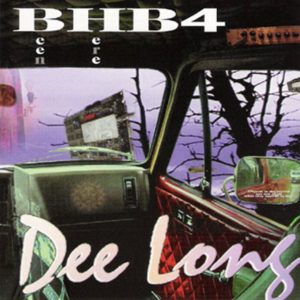 Dee Long
Dee Long
Been Here Before
For a while there back in the ’70s, everybody thought Canuck popsters Klaatu were The Beatles. For their part, they were savvy enough not to deny it too loudly or clearly, thus ensuring they sold loads more albums than they would have. Well, nobody is going to take this new solo set from former Klaatu member Dee Long as a long-lost Fab Four frolic. Although it could be misidentified as a new disc from The Moody Blues, Alan Parsons, Gowan, FM, Prism or any one of a zillion other synth-rock outfits from the ’80s. Mainly because of the story behind the disc — Long, who went on to own his own studio, reportedly penned these tracks as a sort of musical business card to impress clients. Not surprisingly, then, prowess tends to outweigh passion on these tracks, which are heavy on sci-fi lyrics, swirling synthesizers and spacey melodies and light on engaging songwriting. Long’s voice is also kinda weak — although his fragile falsetto is a dead ringer for Pete Townshend at times. Now, if he can just that rumour going around …
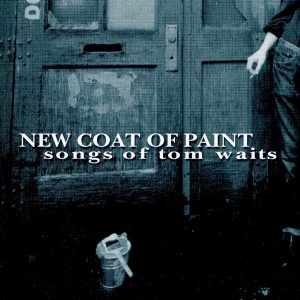 New Coat Of Paint: Songs Of Tom Waits
New Coat Of Paint: Songs Of Tom Waits
Various Artists
With his rumbling delivery and shambling style, boho troubadour Tom Waits is one of music’s most distinctive and idiosyncratic performers. Oddly enough, he also seems to be one of its most-covered songwriters — everyone from Holly Cole to Bruce Springsteen has tackled a Tom tune at one time or another. Another 14 artists add their names to that list on this tribute CD, a sequel to 1996’s Step Right Up. Some of this crew celebrate Waits’ barfly hipster side — check Screamin’ Jay Hawkins’ blustery, bluesy Whistlin’ Past the Graveyard or Andre Williams’ mush-mouthed take on strip-tease rap Pasties and a G-String. Others honour Waits’ skid-row romanticism — like Sally Norvell and Carla Bozulich, who wring every last beery teardrop from Please Call Me, Baby and On the Nickel. But none tops Neko Case, whose stark, organ-backed version of Christmas Card from a Hooker in Minneapolis (one of my personal faves) is a grand weeper that rivals Tom’s version. If you’re a Waits fan — and who in their right might isn’t? — step right up.
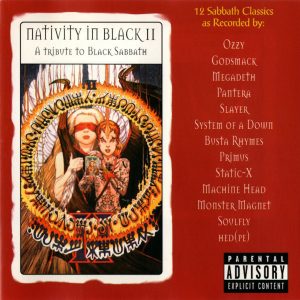 Nativity In Black II: A Tribute To Black Sabbath
Nativity In Black II: A Tribute To Black Sabbath
Various Artists
On his last spoken-word CD, punk-rock comic Henry Rollins quips that the weather service should quit naming killer hurricanes after people and start titling them after a far more destructive force — the first four Black Sabbath albums. He’d likely get no argument from the dozen acts that get in touch with their inner Masters of Reality on this second Sabbath tribute disc. Both nu-metalists like Godsmack (who offer a burning Sweet Leaf) and Machine Head (who head-bang a Hole in the Sky) and dinosaurs such as Megadeth (who fittingly tackle Never Say Die) and Slayer (who brilliantly brutalize Hand of Doom) spare no excess to honour Sabbath’s pioneering combo platter of stoned-out Satanism, fuzz-bomb guitars and bone-grinding metal while updating these tracks for the ’90s with synths, samples and scratching. Ozzy himself even gets in the act, lending vocals to Primus’s predictably wonky take on N.I.B. and Busta Rhymes’ rap-metal reworking of Iron Man (from his ’98 album). One quibble: Because the first disc mined most of the band’s classic tunes, some of these cuts are slightly more obscure. Of course, even an obscure hurricane still packs one helluva wallop.


